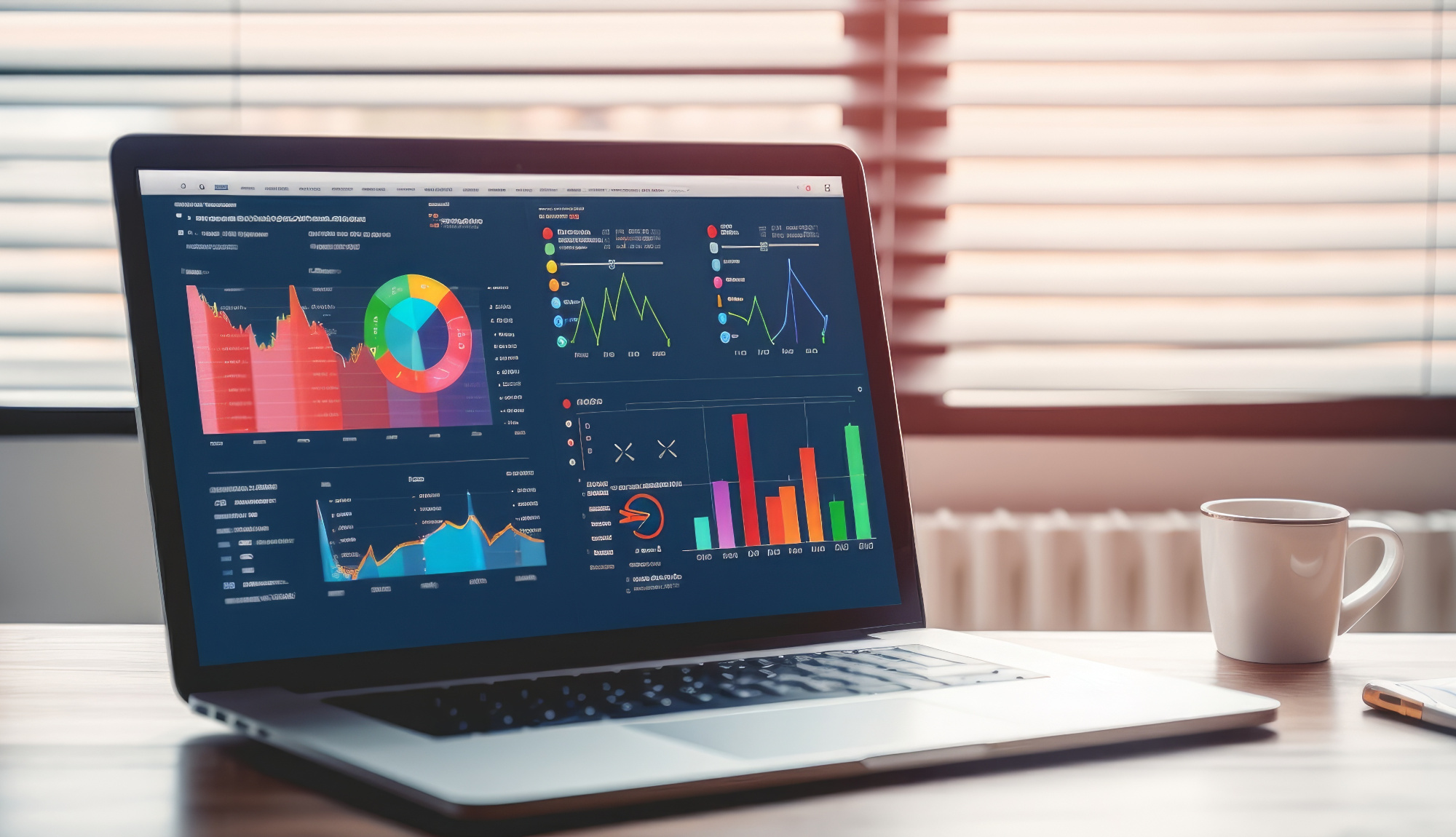Financial reporting software is an essential tool for businesses of all sizes, providing a comprehensive solution for managing and presenting financial data. This software enables companies to compile and analyze financial statements, budgets, and other financial documents in a streamlined and accurate manner. It plays a pivotal role in enhancing financial transparency and compliance with regulatory requirements.
Here, we’ll provide an overview of the key components and benefits of financial reporting software as well as how to choose and implement the best financial reporting software for your business. Not only will we answer the question, “What is financial reporting software?” —but we’ll also help you determine whether it could be a helpful solution for your business.
What Is Financial Reporting Software?
Financial reporting software automates the creation of financial statements such as balance sheets, income statements, and cash flow statements. It integrates data from various sources within an organization, including sales, procurement, and human resources, to provide a holistic view of the company’s financial health. Not only is this integration convenient, but it also ensures accuracy and minimizes the likelihood of errors that can occur with manual handling.

Key Features of Financial Reporting Software
While there are several financial reporting softwares to choose from, they all share a few key features, including:
Data Consolidation: Financial report software consolidates data from multiple departments, offering real-time insights into financial metrics. This consolidation helps in making informed decisions quickly.
Compliance and Security: The software ensures compliance with financial regulations and standards by keeping up-to-date with the latest changes. Additionally, it includes robust security features to protect sensitive financial information from unauthorized access.
Customization and Scalability: One of the significant advantages of financial reporting software is its ability to be customized according to the specific needs of a business. Whether a small startup or a large corporation, the software can scale to accommodate growing amounts of data and more complex financial management needs.
Benefits of Using Financial Reporting Software
Financial reporting software can offer many benefits to your business, such as:
Enhanced Accuracy: By automating financial tasks, the software reduces human errors, ensuring that financial reports are accurate and reliable.
Improved Efficiency: Financial reporting software streamlines the financial reporting process, saving time and allowing finance teams to focus on analysis rather than data entry.
Better Decision Making: With real-time data and analytics, financial leaders can make better strategic decisions that align with the company’s financial health and goals.

Choosing the Right Financial Reporting Software
When selecting financial reporting software, it’s essential to consider your business’s specific needs. Key factors include the size of your business, the complexity of your financial processes, industry-specific requirements, and integration capabilities with other tools. It’s also crucial to evaluate the software’s user interface and ease of use to ensure it aligns with the skill set of your team.
Implementing Financial Reporting Software
Successful implementation of financial reporting software involves careful planning and execution. It is advisable to start with a clear understanding of your financial workflows and requirements. Training and support are crucial, as they ensure that your team is proficient in using the new system. Additionally, ongoing evaluation and updates are essential to leverage the software fully as your business evolves.
Do You Need Financial Reporting Software?
Deciding if you need financial reporting software involves assessing your financial management needs. If your business deals with a high volume of transactions, has complex financial structures, or faces stringent regulatory requirements, this software can significantly enhance accuracy, efficiency, and compliance. It streamlines data entry, simplifies compliance, and scales with your business growth, making it ideal for companies looking to optimize their financial operations and support strategic decision-making.
Conclusion
Financial reporting software is more than just a tool for creating financial statements—it’s a comprehensive platform that enhances financial visibility, ensures compliance, and supports strategic decision-making. With the right software, businesses can not only save time and reduce errors but also gain valuable insights that drive better business outcomes. Choosing and implementing the right financial reporting software requires thoughtful consideration but ultimately provides significant long-term benefits.
FAQs About Financial Reporting Software
Who typically uses financial reporting software?
This software is typically used by financial analysts, accountants, CFOs, and other financial professionals within a company. It can also be valuable for business managers and CEOs who need regular financial insights. Even billing companies can benefit from financial reporting software.
Can financial reporting software help with tax preparation?
Yes, many financial reporting systems can assist with tax preparation by organizing financial data in a way that is compatible with tax filing requirements. It can streamline the calculation of tax liabilities and support the preparation of tax-related financial statements.
Is financial reporting software suitable for small businesses?
Absolutely. Small businesses can greatly benefit from financial reporting software as it automates many of the tasks that would otherwise consume considerable time and resources. It also helps small business owners maintain accuracy in their financial reports.
How does financial reporting software integrate with other business systems?
Financial reporting software often integrates with other business systems such as ERP (enterprise resource planning), CRM (customer relationship management), and HRM (human resources management) systems. This integration allows for seamless data flow and consolidated reporting across various business functions.
What are the security features of financial reporting software?
Security features typically include data encryption, role-based access controls, secure data storage, and audit trails. These features help protect sensitive financial information from unauthorized access and breaches.
How often should financial reports be generated using this software?
The frequency of report generation depends on the business’s needs. While some reports are generated monthly or quarterly, others, like those for high-level strategic planning, might be compiled annually. Real-time reporting capabilities are also common, allowing for instant decision-making.
Can financial reporting software be customized for industry-specific needs?
Yes, most financial reporting software offers customization options to cater to industry-specific requirements. This could include specific compliance reports for financial institutions or fund management features for investment firms.
What is the typical cost of financial reporting software?
The cost can vary widely depending on features, scalability, and the specific needs of the business. Some products are offered through a subscription model, while others may involve one-time licensing fees plus ongoing support costs.
What should be considered when transitioning from manual reporting to software-based reporting?
When transitioning, consider data migration, system integration, user training, and the scalability of the solution. It’s also important to ensure that the chosen software can be adapted to the existing financial workflows of the business.
How do I fire my accountant?
Understanding how to fire your accountant requires sensitivity. You might be dissatisfied with their services, have ethical concerns, or feel that they lack expertise. Whatever your reasons, it’s important to review your contract to understand the terms of termination and to secure your financial information by changing passwords and revoking access to sensitive accounts and systems.
